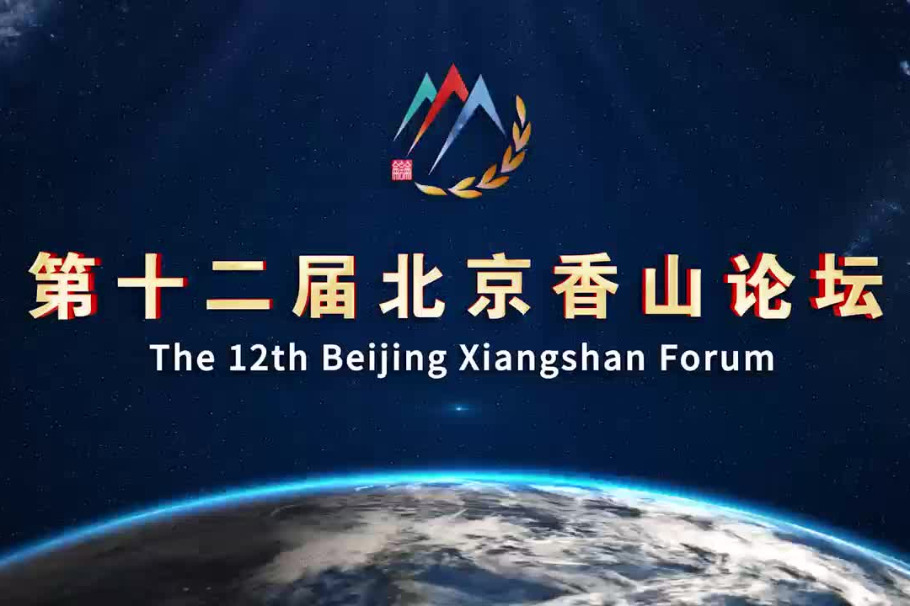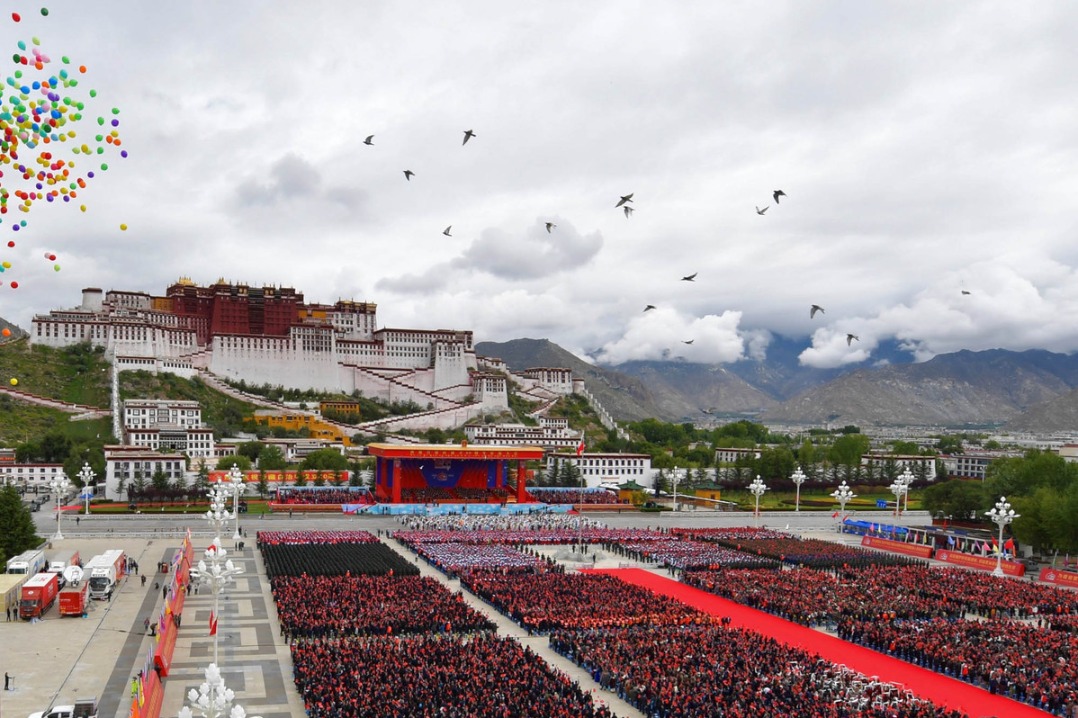Smart cities can better tackle extreme weather


This week marks the onset of the first widespread high-temperature weather of the year in northern China. Taiyuan in Shanxi province may experience temperatures soaring up to 39 C, while Xi'an of Shaanxi province is expected to surpass 40 C in the coming days.
Extreme weather events, once seen as anomalies, are becoming increasingly routine. From scorching heat waves across Europe to devastating hurricanes and floods in North America and severe snowstorms in Asia, extreme weather events are becoming more frequent and severe.
Extreme weather governance requires systemic endeavor spanning multiple domains, departments, and stakeholders, and effective collaboration among governments, businesses and society. To begin with, governments must strengthen institutional safeguards and establish a robust framework for cross-departmental coordination. By enacting legislation to demarcate different departments' responsibilities and rights, governments can create emergency response mechanisms that cover critical sectors such as power, transportation, and communication, while promoting cross-regional early warning and joint prevention.
For instance, in response to extreme heat waves, France's national meteorological agency established a four-tier high-temperature warning system and introduced a "national heatwave plan" to coordinate resource allocation among government departments, healthcare systems, and insurance companies.
It is important to remember that businesses play the role as engines of technological innovation. With advancements in monitoring, early warning and emergency response technologies, companies can provide precise and reliable information on extreme weather events by integrating satellite remote sensing, smart sensors, and big data analytics.
From emergency communication devices to adaptive control systems, the intelligent transformation of critical infrastructure will significantly enhance cities' self-protection and rapid recovery capabilities in the face of extreme weather. The Netherlands' "delta programme" exemplifies this approach, where businesses, water management authorities and academic institutions collaborate to combine multi-layered protection with regional governance through smart engineering and technological solutions, mitigating the threats posed by extreme rainfall.
Moreover, the involvement of civil society is crucial for fortifying grassroots defenses. By developing community contingency plans, organizing volunteer teams and establishing joint prevention mechanisms, communities can ensure timely assistance and active participation in disaster prevention and relief efforts.
Extreme weather not only impacts economic infrastructure but also disproportionately threatens vulnerable populations. Therefore, inclusive governance must balance "material resilience" and "social equity", ensuring that no one is left behind when disasters strike.
First, spatial equity must be addressed. High-risk and vulnerable areas require targeted protection, including the planning of shelters and evacuation routes, as real-time monitoring of infrastructure using smart sensing devices can enhance reliability and sustainability. For example, during cold snaps, the German government not only opened temporary shelters providing accommodation and hot meals for people but also organized charity patrols to distribute winter supplies to the homeless.
Second, resource equity is critical. The rapidly changing impacts of extreme weather necessitate dynamic allocation of medical supplies, food and other essentials. Establishing databases for special groups and delivering targeted early warnings and risk-avoidance guidelines are necessary to provide vulnerable populations such as the elderly, disabled and low-income groups with timely support during disasters. Copenhagen's "climate-resilient neighborhoods" project is a prime example in this regard.
Third, equity in rights must be ensured. Legislation and institutional frameworks should be used to establish "safety net mechanisms" for extreme weather response, define rescue priority levels and set protection standards, and regular community education and disaster drills prioritized to help vulnerable groups enhance their self-rescue and mutual aid capabilities, in order to ensure "no one is behind".
With disaster scenarios becoming increasingly complex, traditional fragmented responses are no longer adequate. To enhance the systemic and timely response to extreme weather, we must leverage technological empowerment and digital transformation to build a smart climate governance system.
At the monitoring level, integrating technologies such as satellite remote sensing, the internet of things sensors, and robotic inspections can create a multi-dimensional network covering air, ground and underground, enabling precise identification of extreme weather risks. The European Union's "Copernicus Programme" exemplifies this approach.
At the early warning level, big data and AI models can significantly improve the accuracy and timeliness of forecasts by integrating historical meteorological data with real-time monitoring information. Also, smart terminals and multi-platform information dissemination will ensure early warnings reach all corners of society, including vulnerable groups, in a timely manner.
At the response level, an integrated emergency command platform is essential for real-time dispatch and decision-making. Initiatives like the United States' "smart cities initiative" and Japan's "Society 5.0" vision emphasize the importance of digital monitoring and automated coordination of urban infrastructure.
More important, since climate change knows no borders, addressing extreme weather requires global cooperation. As an active participant and significant contributor to global climate governance, China has accumulated substantial experience in responding to extreme weather in recent years, with its "National Climate Change Adaptation Strategy" outlining the long-term goals and action plans for extreme weather response.
Leveraging the world's largest integrated land-sea-air-space meteorological observation system, China provides Fengyun satellite services to more than 130 countries and regions. Through multi-stakeholder collaboration, China has progressively refined its extreme weather response mechanism.
Today, the global approach to the climate crisis is shifting from "emission reduction-focused" to "adaptation-focused", with the increasing frequency of extreme weather underscoring the urgency of building resilience. Only through comprehensive governance that embraces multi-stakeholder collaboration, inclusive sharing and systemic integration can we transform extreme weather events from a "survival challenge" into a "governance opportunity".
The author is a distinguished professor at Sichuan University, and a member of the National Committee of the Chinese People's Political Consultative Conference. The views don't necessarily reflect those of China Daily.
If you have a specific expertise, or would like to share your thought about our stories, then send us your writings at opinion@chinadaily.com.cn, and comment@chinadaily.com.cn.


































